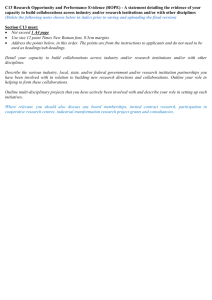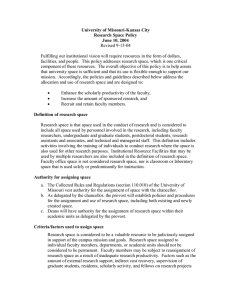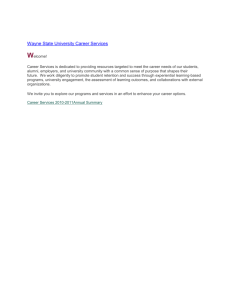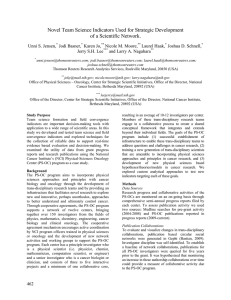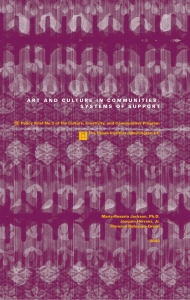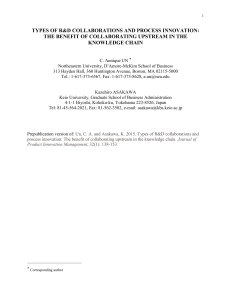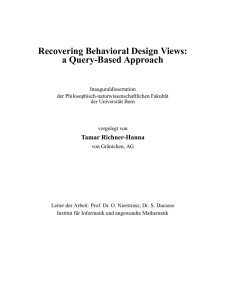As Western Kentucky University enters Our biological clocks are ticking,
advertisement
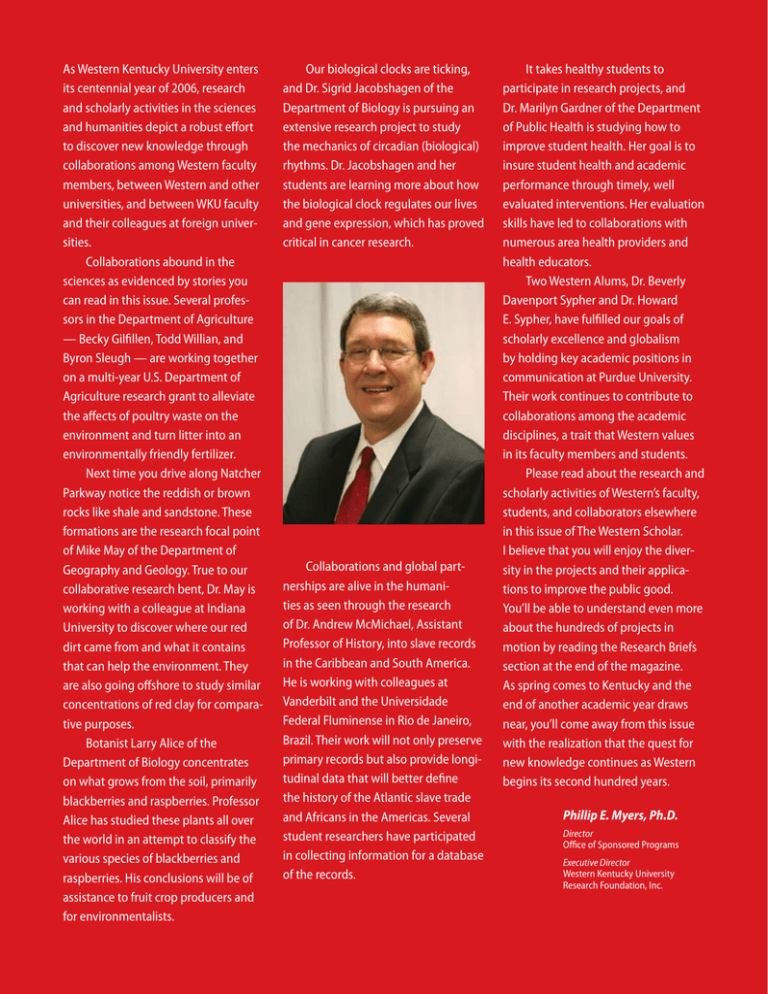
As Western Kentucky University enters its centennial year of 2006, research and scholarly activities in the sciences and humanities depict a robust effort to discover new knowledge through collaborations among Western faculty members, between Western and other universities, and between WKU faculty and their colleagues at foreign universities. Collaborations abound in the sciences as evidenced by stories you can read in this issue. Several professors in the Department of Agriculture — Becky Gilfillen, Todd Willian, and Byron Sleugh — are working together on a multi-year U.S. Department of Agriculture research grant to alleviate the affects of poultry waste on the environment and turn litter into an environmentally friendly fertilizer. Next time you drive along Natcher Parkway notice the reddish or brown rocks like shale and sandstone. These formations are the research focal point of Mike May of the Department of Geography and Geology. True to our collaborative research bent, Dr. May is working with a colleague at Indiana University to discover where our red dirt came from and what it contains that can help the environment. They are also going offshore to study similar concentrations of red clay for comparative purposes. Botanist Larry Alice of the Department of Biology concentrates on what grows from the soil, primarily blackberries and raspberries. Professor Alice has studied these plants all over the world in an attempt to classify the various species of blackberries and raspberries. His conclusions will be of assistance to fruit crop producers and for environmentalists. Our biological clocks are ticking, and Dr. Sigrid Jacobshagen of the Department of Biology is pursuing an extensive research project to study the mechanics of circadian (biological) rhythms. Dr. Jacobshagen and her students are learning more about how the biological clock regulates our lives and gene expression, which has proved critical in cancer research. Collaborations and global partnerships are alive in the humanities as seen through the research of Dr. Andrew McMichael, Assistant Professor of History, into slave records in the Caribbean and South America. He is working with colleagues at Vanderbilt and the Universidade Federal Fluminense in Rio de Janeiro, Brazil. Their work will not only preserve primary records but also provide longitudinal data that will better define the history of the Atlantic slave trade and Africans in the Americas. Several student researchers have participated in collecting information for a database of the records. It takes healthy students to participate in research projects, and Dr. Marilyn Gardner of the Department of Public Health is studying how to improve student health. Her goal is to insure student health and academic performance through timely, well evaluated interventions. Her evaluation skills have led to collaborations with numerous area health providers and health educators. Two Western Alums, Dr. Beverly Davenport Sypher and Dr. Howard E. Sypher, have fulfilled our goals of scholarly excellence and globalism by holding key academic positions in communication at Purdue University. Their work continues to contribute to collaborations among the academic disciplines, a trait that Western values in its faculty members and students. Please read about the research and scholarly activities of Western’s faculty, students, and collaborators elsewhere in this issue of The Western Scholar. I believe that you will enjoy the diversity in the projects and their applications to improve the public good. You’ll be able to understand even more about the hundreds of projects in motion by reading the Research Briefs section at the end of the magazine. As spring comes to Kentucky and the end of another academic year draws near, you’ll come away from this issue with the realization that the quest for new knowledge continues as Western begins its second hundred years. Phillip E. Myers, Ph.D. Director Office of Sponsored Programs Executive Director Western Kentucky University Research Foundation, Inc.
